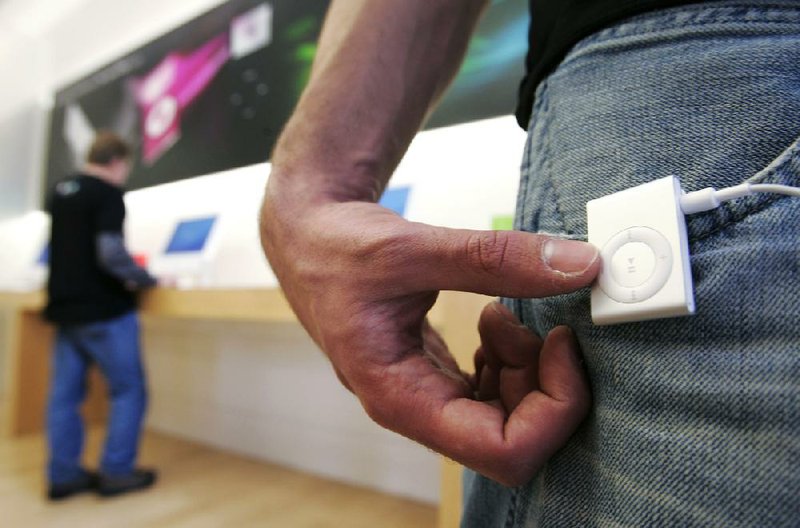OAKLAND, Calif. -- A jury has decided that Apple did not use software to block songs sold by competing music stores from playing on the iPod so that it could secure a monopoly over the digital music market.
The jurors determined that Apple had used a version of the iTunes software that it issued eight years ago to deliver genuine improvements for iPods sold between 2006 and 2009.
The jury of eight rendered its verdict Tuesday after about three hours of deliberation, wrapping up a class-action antitrust suit that had kicked around in various courts and in various forms for 10 years before it finally went to trial in federal court in early December.
The lawsuit involved iPods sold between September 2006 and March 2009, which played songs sold in the iTunes Store or those downloaded from CDs -- not music from some competing stores. Apple was accused of violating antitrust law by using a copyright management system to lock people into buying iPods rather than cheaper alternatives.
Apple applauded the verdict in a statement.
"We created iPod and iTunes to give our customers the world's best way to listen to music," according to the statement. "Every time we've updated those products -- and every Apple product over the years -- we've done it to make the user experience even better."
The case handed off to the jury Monday was different from the one it was presented when the trial opened.
Lawyers discovered that two of the plaintiffs initially named in the suit did not buy iPods in the relevant time period, so they were removed from the case. The judge overseeing the trial appointed a new plaintiff, Barbara Bennett of Marshfield, Mass., a few hours before the case was handed to the jury Monday. But Bennett was not given time to testify.
In their closing statements, Apple's lawyers repeatedly pointed out that the plaintiffs' side lacked any actual iPod customers to say they were harmed, among other arguments.
"There's not one piece of evidence of a single individual who lost a single song, not even a complaint about it," said William Isaacson, Apple's lead lawyer in the case. "This is all made up at this point."
The substance of the plaintiffs' claims was also whittled down during the trial.
The jury was initially instructed to assess whether two versions of Apple's iTunes software were genuine product improvements. But the judge tossed out a claim about the second iTunes version after an economist testifying for the plaintiffs, Roger Noll from Stanford University, conceded in court that he had not assessed any impact made by that version of the software.
Business on 12/17/2014

